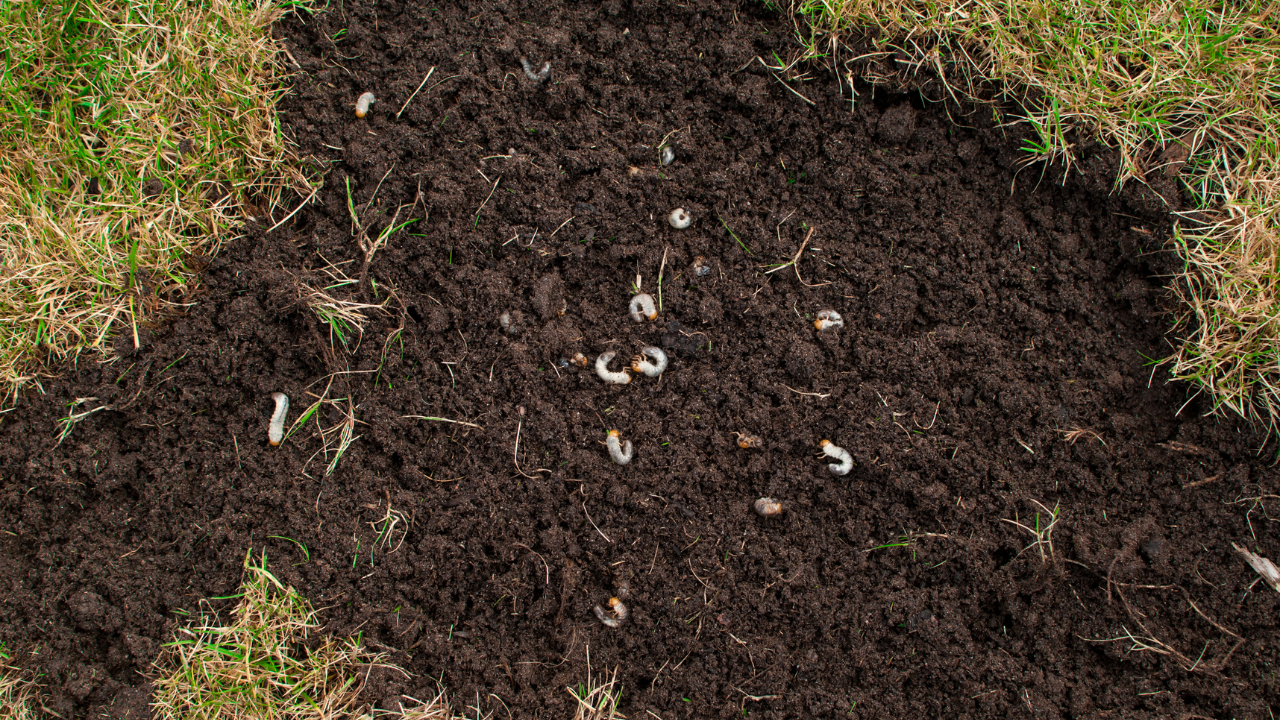Get Your Free Instant Online Quote Here
How to Control Lawn Grubs in New Jersey
Controlling grubs in New Jersey, or anywhere else, requires a combination of preventive measures and treatments. Grub control can be more effective when done proactively, but it's also possible to manage existing infestations. Here's a step-by-step guide on how to control grubs in your New Jersey lawn:
Identify the Grub Species: Before implementing any control measures, it's essential to determine the specific grub species causing the problem in your lawn. Different species may have different lifecycles and susceptibility to treatments.
Monitor Your Lawn: Regularly inspect your lawn for signs of grub activity, such as brown patches, spongy turf, or increased pest activity. Timing is crucial for effective control, as grubs are most vulnerable during certain stages of their lifecycle.
Implement Preventive Measures:
-Choose Resistant Grass Varieties: When planting or overseeding your lawn, consider using grass varieties that are less attractive to grubs.
-Proper Lawn Maintenance: Maintain a healthy lawn through proper watering, mowing, and fertilization practices. A strong, thick lawn is less susceptible to grub damage.
-Manage Thatch: Keep thatch (a layer of dead grass and organic matter) in check, as it can provide a conducive environment for grub development. Raking and aerating your yard will help eliminate thatch build up.
Natural Predators: Encourage natural predators of grubs, such as nematodes and certain bird species. Nematodes, like Heterorhabditis bacteriophora, are beneficial microscopic worms that parasitize and kill grubs. More of a natural approach here.
Grub Control & Lawn Care Program
We provide preventative and curative grub control starting spring, ending later summer as part of our regularly scheduled lawn care program. We have been providing grub control services to Middlesex and Monmouth County since 1982!
Chemical Control: If you have a severe grub infestation, you may need to use chemical treatments. Choose a product specifically labeled for grub control. Follow these steps when using chemical control:
-Timing is Key: Apply grub control products during the peak activity periods of the specific grub species in your region. In New Jersey, this is typically in late spring or early summer and again in early fall.
-Read the Label: Carefully read and follow the instructions on the product label regarding application rates, timing, and safety precautions.
-Watering: After applying the treatment, water your lawn thoroughly to help the product reach the soil where the grubs are located.
Raccoon and Skunk Deterrents: If you have issues with raccoons and skunks digging up your lawn to feed on grubs, consider using deterrents like motion-activated sprinklers or securing garbage cans to reduce their attraction to your property.
Monitor and Reapply: Keep an eye on your lawn throughout the season to assess the effectiveness of your chosen control method. If needed, reapply treatments according to the recommended schedule.
Consult Healthy Lawn NJ! If you're unsure about how to proceed or if the infestation persists despite your efforts, consider consulting us! We can offer lawn care and grub control services.
Remember that grub control is most effective when implemented proactively and based on the specific conditions in your lawn. By taking these steps, you can protect your New Jersey lawn from grub damage and maintain its lush, green appearance.
Signs You may Need Grub Control | Signs of Grub Infestation
Identifying a grub problem in your New Jersey lawn is crucial to prevent extensive damage. Grubs are the larvae of various beetle species and can wreak havoc on your grass if left unchecked. Here are the signs to look out for in New Jersey lawns that may indicate a grub problem:
Brown or Dead Patches: The most common and visible sign of a grub infestation is the appearance of irregularly shaped brown or dead patches in your lawn. These patches may start small but can quickly grow in size as grubs continue to feed on the grassroots.
Spongy or Wilting Turf: When you walk on your lawn, it may feel spongy or like the grass is wilting underfoot. This is because grubs feed on the roots of grass, weakening their ability to absorb water and nutrients. As a result, the affected areas may feel soft and sponge-like.
Increased Pest Activity: Grubs are a tasty snack for various wildlife, including skunks, raccoons, birds, and moles. If you notice more frequent visits from these animals, especially during the nighttime, it could be an indication that they are digging up your lawn in search of grubs.
Thinning Grass: Your lawn may start to thin out and look less dense, even if you maintain proper lawn care practices such as watering and fertilizing. This thinning occurs as grubs disrupt the grass's root system, making it more susceptible to stress and disease.
Irregularly Damaged Turf: Grub damage tends to be irregular, with patches of healthy grass intermixed with damaged areas. This irregular pattern is different from the more uniform damage seen in other lawn issues like fungal diseases.
Presence of Adult Beetles: While not a definitive sign of a grub infestation, the presence of adult beetles in your garden can be an indicator. Adult beetles lay eggs in the soil, which hatch into grubs. If you notice an abundance of adult beetles in your area, it may suggest an increased risk of grub activity.
Root Damage: To confirm the presence of grubs, dig up a small section of your lawn in a damaged area and examine the soil and grassroots. Grubs are typically C-shaped, white or off-white, and can often be seen feeding on the roots.
Seasonal Patterns: In New Jersey, grubs are most active in late spring and early summer, as well as in early fall. If you notice lawn damage coinciding with these times, it may be a sign of grub infestation.
If you suspect a grub problem in your New Jersey lawn based on these signs, consider consulting with us. We can assess the extent of the infestation and provide the appropriate treatments to protect your lawn from further damage. Early detection and proactive management are key to maintaining a healthy, green lawn in the Garden State.


